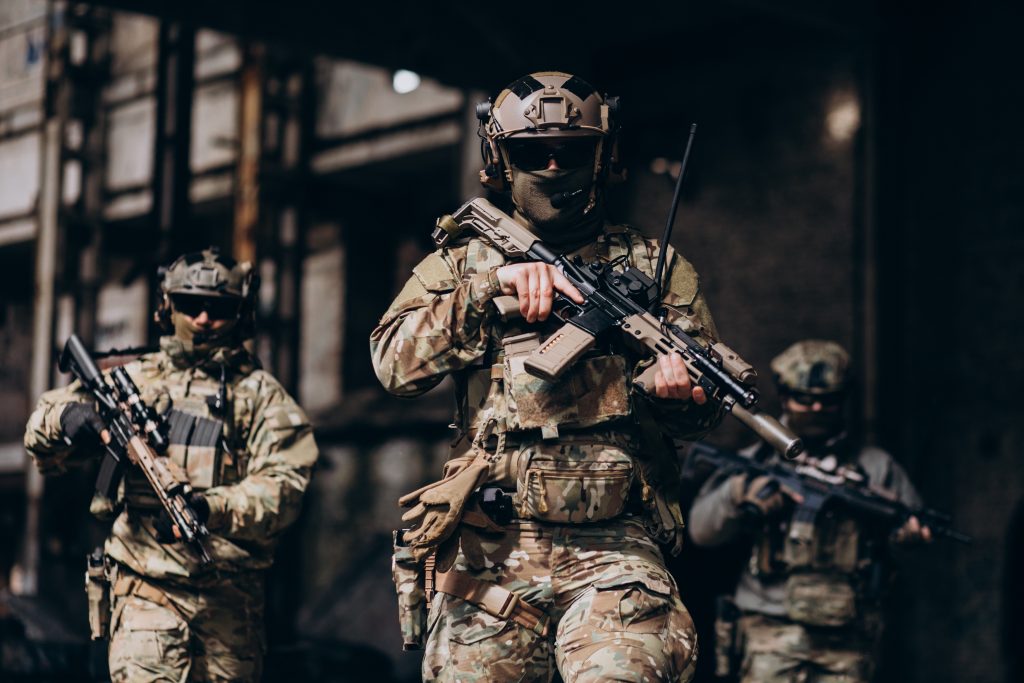Indian Army jobs offer unmatched respect, security, and growth opportunities, and understanding the eligibility and process is key to joining.

When I was a child, we had a neighbor named Captain Singh. Every evening, he’d return in uniform, tall and calm, with a smile that carried pride. Kids in the lane would salute him playfully, and he’d salute back. I never forgot the respect he commanded.
That’s the aura of the Indian Army. It’s not just about a paycheck—it’s about honor, discipline, and service. For many young Indians, Indian Army jobs are more than careers; they’re dreams stitched with courage.
This blog is a guide to joining the Army. We’ll talk about departments, eligibility, recruitment paths, and tips to prepare. Let’s make it practical and easy to follow.
Visit Us >>>> https://www.impacteers.com/home
Why Choose an Indian Army Job?
The reasons are powerful:
- Service to the Nation: You directly protect India.
- Prestige & Respect: Uniform carries weight in every corner.
- Job Security: It’s a government career with long-term benefits.
- Adventure & Travel: You may serve across mountains, deserts, or seas.
- Growth: Promotions are structured, with leadership opportunities.
It’s not an easy life—but it’s a meaningful one.
Departments of the Indian Army
The Army isn’t one block—it’s built of many branches. Each has its own roles.
1. Combat Arms
- Infantry, Armoured Corps, Artillery.
- Direct fighting roles.
- Suited for those who want frontline action.
2. Combat Support Arms
- Engineers, Signals, Air Defence.
- Provide logistics, construction, and communication.
3. Services (Logistics & Support)
- Army Service Corps, Ordnance, Medical Corps, Education Corps.
- Handle supplies, transport, health, and training.
4. Technical Departments
- Electronics, Mechanical Engineers (EME), technical officers.
- For engineering graduates and diploma holders.
5. Territorial Army
- Part-time service for professionals who want to serve alongside their careers.
Every department matters. Some fight, some support, but all serve the same cause.
Eligibility for Indian Army Jobs
Eligibility depends on the entry scheme. Here’s a breakdown:
- Educational Qualification:
- 10th pass: Soldier (General Duty).
- 12th pass: Soldier (Technical, Clerk, Nursing).
- Graduation: Officers (through NDA, CDS, TGC, etc.).
- Professional degrees (Engineering, Medicine): Technical & Medical Corps.
- 10th pass: Soldier (General Duty).
- Age Limit:
- Soldiers: 17.5 to 21 years.
- Officers (NDA): 16.5 to 19.5 years.
- Officers (CDS): 19 to 24 years.
- Other entries: Up to 27–35 years depending on branch.
- Soldiers: 17.5 to 21 years.
- Nationality:
- Indian citizens.
- Certain posts allow Nepali, Bhutanese, and Tibetan refugees settled in India.
- Indian citizens.
- Physical Standards:
- Height: Around 157–170 cm (varies by region).
- Weight: Proportionate to height.
- Vision: 6/6 or 6/9 with glasses (varies by role).
- Fitness: Running, push-ups, pull-ups, endurance.
- Height: Around 157–170 cm (varies by region).
Entry Routes to Indian Army Jobs
There are multiple doors into the Army. Which one suits you depends on your age, degree, and dream role.
1. NDA (National Defence Academy)
- For: 12th pass students (16.5–19.5 years).
- Exam by UPSC twice a year.
- Training in Khadakwasla, Pune.
2. CDS (Combined Defence Services)
- For: Graduates (19–24 years).
- Exam by UPSC.
- Officers’ training at IMA, OTA.
3. Technical Entry Scheme (TES)
- For: 12th pass with PCM.
- Direct entry for engineering aspirants.
4. University Entry Scheme (UES)
- For: Engineering students in final year.
5. NCC Special Entry
- For: NCC ‘C’ Certificate holders.
- Direct entry to Officers Training Academy (OTA).
6. Army Medical Corps
- For: MBBS and BDS graduates.
7. Soldier & Clerk Recruitment Rallies
- For: 10th and 12th pass candidates.
- Physical and written tests conducted at zonal recruitment offices.
8. Territorial Army
- For: Professionals who want part-time service (18–42 years).
Recruitment Process for Army Jobs
The process is layered and strict.
- Written Exam (NDA, CDS, TES, rallies).
- Physical Fitness Test: Running, push-ups, pull-ups, beam climbing.
- Medical Examination: Eyesight, blood pressure, stamina, overall health.
- SSB Interview: Personality and leadership test for officer roles.
- Final Merit List: Based on combined scores.
Aspirants often find the SSB (Services Selection Board) toughest—it tests not just academics but personality, leadership, and courage.
How to Apply for Indian Army Jobs
Step 1: Check Notifications
- Visit the official joinindianarmy.nic.in website.
- Watch for UPSC announcements (for NDA, CDS).
Step 2: Register Online
- Create a profile with basic details.
- Choose the post and entry scheme.
Step 3: Submit Application
- Fill educational info.
- Upload documents (photo, signature, certificates).
Step 4: Pay Fees (if applicable)
- Many Army entries don’t charge fees.
Step 5: Download Admit Card
- Print copies. Carry ID proof on exam day.
Common Mistakes Aspirants Make
- Ignoring physical training until last minute.
- Filling wrong category or age details.
- Using incorrect photo sizes.
- Missing deadlines by waiting until the last day.
Apply early. Train daily. Double-check documents.
Preparation Tips for Indian Army Exams
- Start with basics. NCERT books help for NDA/CDS.
- Focus on physical fitness. Practice running daily.
- Read newspapers. Current affairs matter for interviews.
- Do mock interviews. SSB is about confidence and clarity.
- Set routines. Small, consistent steps beat cramming.
If you’re balancing studies or work, a clear routine is vital. That’s where mentorship matters.
Balancing Studies & Training
Ravi, a 12th grader from Haryana, dreamed of joining Infantry. He ran 5 km every morning before school, studied general knowledge in the evenings, and used Sundays for mock papers.
He didn’t top his class, but he cleared NDA. That’s the balance you need—fitness plus academics.
How Mentorship Helps Aspirants
Preparing alone can feel overwhelming. A mentor helps you:
- Plan study schedules.
- Build physical training routines.
- Practice mock interviews.
- Stay accountable week by week.
That’s why aspirants trust programs like Impacteers mentorship. It isn’t a shortcut. It’s a guidepost—a way to keep your steps steady when the path looks long.

Conclusion
Indian Army jobs aren’t just employment. They’re a commitment to serve. From frontline Infantry to technical corps, from officers to medics—every role shapes India’s strength.
The path is tough, yes. But those who walk it earn more than a career—they earn respect.
If you’re serious, start small today. Train your body. Open a book. Check notifications. Build the habit of discipline.
And if you feel lost, don’t hesitate to seek guidance. A mentor can turn confusion into clarity. Programs like Impacteers mentorship have helped many aspirants stay on track.
The Army doesn’t just want strength. It wants steady hearts. If you’ve got that spark, your uniform is waiting.
About Us >>>> https://blog.impacteers.com/
FAQs on Indian Army Jobs
Q1. Can I join the Indian Army after 12th?
Yes, through NDA, TES, and Soldier recruitment rallies.
Q2. What is the age limit for Indian Army jobs?
It varies—17.5 to 21 for soldiers, 16.5 to 19.5 for NDA, and up to 24 for CDS.
Q3. Do women have opportunities in the Indian Army?
Yes, through CDS, SSC (Short Service Commission), NCC special entry, and Army Medical Corps.
Q4. How tough is Army recruitment?
It’s challenging—written exams, physical tests, medical checks, and SSB interviews. Preparation and discipline are key.
Q5. Can mentorship help in Army exam prep?
Yes. Mentorship like Impacteers provides structure for both academics and personality development—crucial for Army selection.



Post Comment